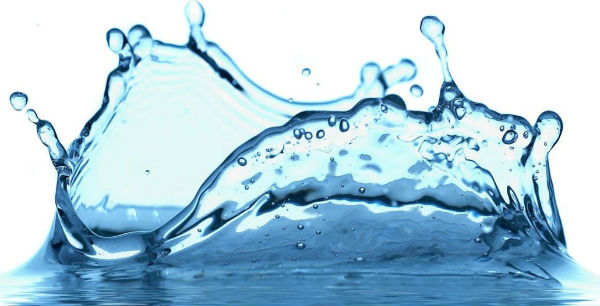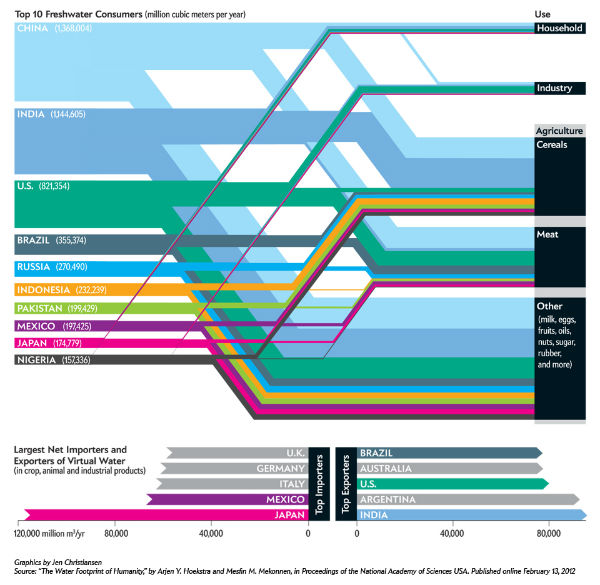New insights on worldwide water consumption

Engineers Arjen Y. Hoekstra and Mesfin M. Mekonnen of the University of Twente in the Netherlands gave new insights on worldwide water consumption. China and India are leading consumers, followed by US, Brazil and Russia. On top ten scale are Indonesia, Pakistan, Mexico, Japan and Nigeria. A vast amount of water is used to produce the food and products that nations consume. Large population is the greatest factor, but inefficient agriculture or dependence on water-intensive cuisine can exacerbate demand; meat consumption accounts for 30 percent of the U.S. water footprint.
Certain countries, such as India and the U.S., also export significant quantities of water in the form of food and products, despite their own robust consumption. Populous nations that have little land or little water are huge net importers. Over the long-term, net exporters may want to alter trade policies to avoid creating their own water shortages or raise prices to reflect the cost of increasingly scarce water resources. Inefficient water nations might improve agricultural practices. And net importers might lower exports to save water for domestic use. (Scientific American)
Worldwide, agriculture accounts for 70% of all water consumption, compared to 20% for industry and 10% for domestic use. In industrialized nations, however, industries consume more than half of the water available for human use. Belgium, for example, uses 80% of the water available for industry.
Freshwater withdrawals have tripled over the last 50 years. Demand for freshwater is increasing by 64 billion cubic meters a year (1 cubic meter = 1,000 liters)
- The world’s population is growing by roughly 80 million people each year.
- Changes in lifestyles and eating habits in recent years are requiring more water consumption per capita.
- The production of biofuels has also increased sharply in recent years, with significant impact on water demand. Between 1,000 and 4,000 litres of water are needed to produce a single litre of biofuel.
- Energy demand is also accelerating, with corresponding implications for water demand.


Commenting rules and guidelines
We value the thoughts and opinions of our readers and welcome healthy discussions on our website. In order to maintain a respectful and positive community, we ask that all commenters follow these rules.